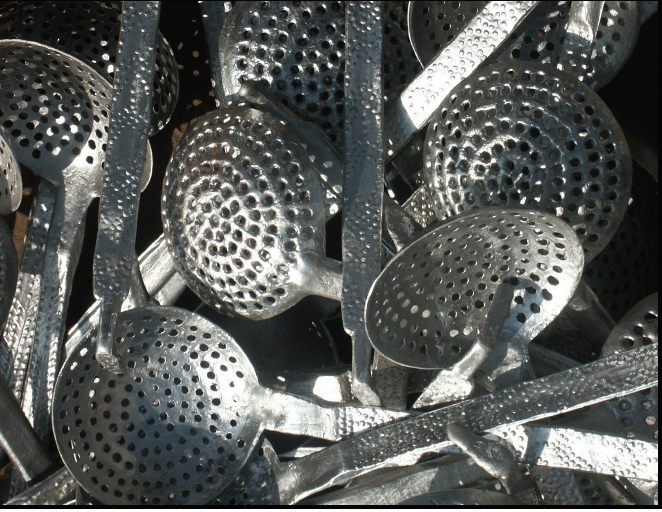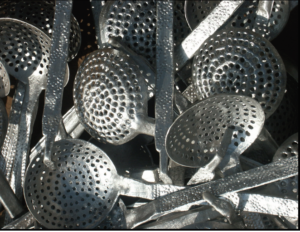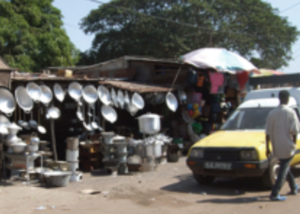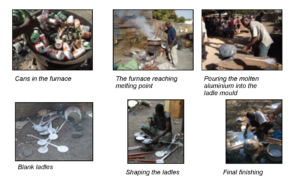In The Gambia there is a thriving industry based on recycling of waste aluminium to produce a range of kitchen and other goods including aluminium ladles. Recycling here is not a duty, like it is in the first world, but a real economic necessity.
The cost of imported saucepans, pots and pans is beyond the means of most Gambian families.
To make the recycled aluminium goods, the recyclers have to collect together scrap aluminium, which may come from disused consumer goods like fridges, old cars (especially Landrovers) and discarded drink cans. The old aluminium has then to be melted (at a temperature of 693 C), and the molten aluminium poured into carefully made moulds. These moulds are simple for ladles, but complicated and intricate for making pots and bowls.
The recycler is careful to make the furnace as efficient as possible because firewood or charcoal is comparatively expensive. Using molten aluminium is also very dangerous and health and safety considerations are less rigorous than they would be in first world countries.
To make the ladles a simple flat mould is made and the molten aluminium gently and carefully poured into the mould. This produces a flat blank ladle which then has to be
shaped and polished by the finishers. The ladle is then ready for sale for about 40 dalasis (80p).
In Serrekunda market, the making of recycled aluminium goods, is the basis of complex activity and business entrepreneurship. Children collect cans and sell them to the re-cyclers, craftsmen make complicated moulds which especially for bowls and pots have to be precise. The master smelter oversees the mellting and pouring of the aluminium and then various finishers, make the final adjustments to the goods. Then they are sold in the shop. The shop front is on the thoroughfare jostling with passersby, behind the shop the workshops are found, a veritable pre-industrial, cottage style industry providing employment for a range of people, allbeit on minimal wages but also relying on a developing skills bank not only improving technical abilities.




